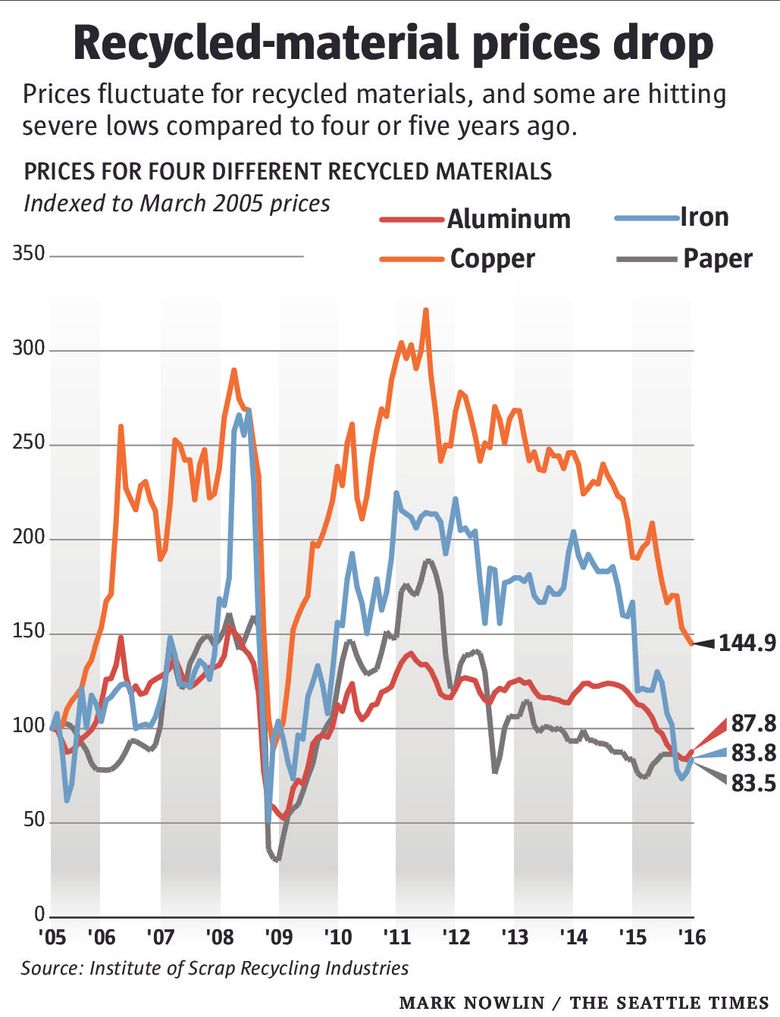Phil - There are different types of places you can get paid for your C.R.V. recycling containers. Vending Machine, Recycling Centers (scrap yards) and Certified CRV Processors. Depending on where you take your cans and bottles makes a huge difference in how much you get paid. Besides the CRV returned to you there is also a "scrap" value. If you take your aluminum cans to a scrap yard that does a "low" volume of aluminum cans and they are just "feeder" yard, that sell to a larger aluminum can CRV processor, then they will pay less. I sell to a CRV processor directly, so I'm eliminating the feeder yard. Most places are certified recycler's that pay the minimum CRV rate ($1.55 to $1.61 changes twice a year) plus a added scrap value. The certified recycler's sell to a certified CRV processor, they get paid the CRV + scrap rate + handling fee. So if you can sell directly to a processor, they can pay you more money! There are thousands of certified recycling and collection facilities. There is only a limited number of CRV processors and the one I sell to is in the city of Ontario, if you want their name, send me a PM and I'll forward their name/address to you.
California generates money for recycling programs by having the manufacturers producing containers pay an upfront fee. That cost then flows to consumers, who pay an additional deposit fee when they buy CRV beverages $0.05 for containers under 24 ounces and $0.10 for greater than 24 ounce containers (we also pay a sales tax on all CRV sales). The revenue is paid out to recycling processors and curb side collectors (municipal and commercial trash companies).
Read more here: Recycling advocates ponder expanding California
Certified recycling centers are allowed to pay by weight as a matter of business efficiency and customer convenience. The State of California Beverage Recycling Division establishes the minimum per-pound payment rate that certified recycler's must pay for each container type (aluminum, plastic, bi-metal, and glass). Currently the minimum payment amount is re-calculated every six months, so the minimum amount per-pound paid by a recycler may change twice a year.
To help eliminate and reduce theft and fraudulent CRV transactions:
Effective January 1, 2014, in accordance with the revisions to Title 14 of the California Code of Regulations (14CCR), Section 2535(f), a certified recycler shall not pay refund value to, or claim refund value for any material received from any person, operation or entity who is not certified by the Division, delivering a load of material in excess of 100 pounds of aluminum or plastic beverage containers, or 1,000 pounds of glass beverage containers, per day.
To answer the questions about importing cans and bottles into California from other states:
In accordance with 14CCR Section 2831(a)(2), an Imported Material Report (IMR) is required to be completed and signed by the person importing empty beverage container materials for each applicable load of empty beverage containers imported into California. Completed IMR's help CalRecycle and our partners at the Department of Justice to identify persons importing empty beverage containers who may be attempting on their own or conspiring with other individuals or entities to illegally redeem theimported empty beverage container materials for California Refund Value (CRV) at certified or registered entities. Pursuant to 14CCR Section 2831.3, no person registered by the CalRecycle Division of Recycling (Division) as a curbside program or certified by the Division as a recycling center, dropoff or collection program, or community service program shall take delivery of any empty beverage container material that the person knew or should have known was imported into California.Violation of this prohibition regulation or similar regulations may subject you or your entity to civil penalties, revocation of your certification or registration, and/or criminal prosecution.









 Register To Reply
Register To Reply















Bookmarks